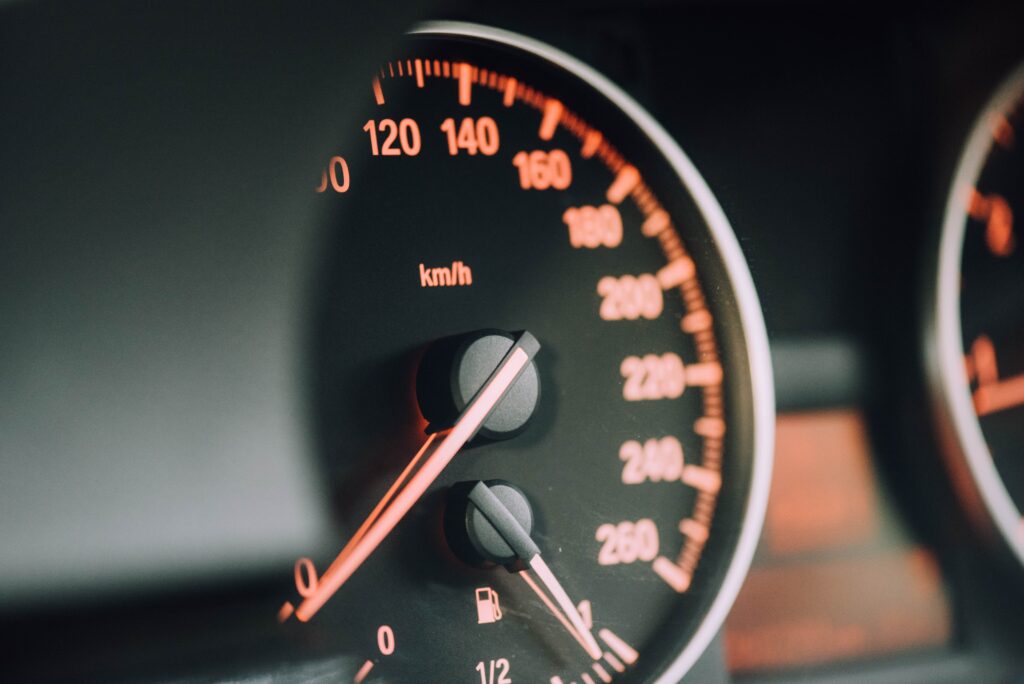You may be surprised to learn that a seemingly harmless leak in your exhaust can actually impact the performance of your vehicle. A leaking exhaust can lead to a loss of power, resulting in a decrease in acceleration and overall engine performance. This article will explore the potential effects of a leaking exhaust on your vehicle’s power and provide insights on how to identify and address this issue effectively. If you’ve been wondering about the correlation between a leaking exhaust and a loss of power, look no further for answers.

Understanding Vehicle Exhaust Systems
Role of a vehicle exhaust system
The vehicle exhaust system plays a crucial role in ensuring the proper functioning of your vehicle. Its primary purpose is to remove harmful gases produced during the combustion process and direct them away from the vehicle’s occupants. Additionally, the exhaust system helps to reduce noise from the engine and aids in improving fuel efficiency. It is an essential component that contributes to the overall performance and functionality of your vehicle.
Components of a vehicle exhaust system
A typical vehicle exhaust system consists of several components, each serving a specific purpose. These components include an exhaust manifold, catalytic converter, exhaust pipes, muffler, and tailpipe. The exhaust manifold collects exhaust gases from the engine cylinders, while the catalytic converter cleans the harmful emissions before they are released into the air. The exhaust pipes connect these components, and the muffler helps to reduce noise levels. Lastly, the tailpipe directs the exhaust gases out of the vehicle.
How an exhaust system works
The exhaust system operates through a series of steps to safely remove the gases created during the combustion process. First, the exhaust manifold collects the gases emitted from each engine cylinder and channels them into the exhaust pipes. The gases then flow through the catalytic converter, where harmful pollutants such as carbon monoxide and nitrogen oxides are converted into less harmful substances. Finally, the gases pass through the muffler, where noise levels are reduced, before being expelled through the tailpipe.
What Exactly is An Exhaust Leak
Definition of an exhaust leak
An exhaust leak refers to a situation where gases escape from the exhaust system before they reach the tailpipe. Instead of being properly directed out of the vehicle, these gases leak out at various points in the exhaust system. This can occur due to damage, corrosion, or deterioration of the exhaust components, resulting in gaps or cracks where the gases can escape.
Reasons behind the exhaust leak
Several factors can contribute to the occurrence of an exhaust leak. One common cause is the natural wear and tear of the exhaust system over time. Exposure to extreme temperatures, corrosive substances, and road debris can cause damage to the exhaust components, leading to leaks. In some cases, improper installation or the use of low-quality parts can also result in exhaust leaks.
Detecting an exhaust leak in your vehicle
Detecting an exhaust leak in your vehicle requires keen observation and attentiveness. One of the most prominent signs of an exhaust leak is the presence of a strong, pungent odor of exhaust gases inside or outside the vehicle. Additionally, you may notice a hissing or popping sound coming from the exhaust system. In some cases, you may even see visible signs of damage, such as holes or cracks in the piping. It is important to address any suspected exhaust leaks promptly to avoid potential damage and ensure the proper functioning of your vehicle.

Symptoms of a Leaking Exhaust
Changes in engine performance
One of the first symptoms you may experience with a leaking exhaust is a noticeable change in your vehicle’s engine performance. This can include a decrease in power, reduced acceleration, or a general lack of responsiveness. As the leak allows exhaust gases to escape before they reach the tailpipe, the engine may struggle to expel the gases efficiently, resulting in compromised performance.
Unusual noise from the exhaust
An exhaust leak can cause abnormal noises to come from the exhaust system. These noises can manifest as hissing, popping, or even a loud roaring sound. The turbulent flow of exhaust gases escaping from the leak can create these unusual sounds, indicating a problem with the exhaust system.
Check engine light comes on
When your vehicle’s onboard computer detects an issue, such as an exhaust leak, it often triggers the check engine light to illuminate on your vehicle’s dashboard. This serves as a warning sign that something is amiss and requires attention. It is crucial not to ignore the check engine light, as it can indicate various problems, including an exhaust leak.
Decreased fuel efficiency
An exhaust leak can also result in decreased fuel efficiency. When the exhaust gases leak prematurely, the engine may not be able to run at its optimal efficiency. As a result, your vehicle may consume more fuel than usual to compensate for the loss of power and performance caused by the exhaust leak. Monitoring your fuel consumption and noting any significant changes can help you identify potential exhaust leaks.
Damage Caused by Exhaust Leaks
Damage to exhaust manifold
Exhaust leaks can cause significant damage to the exhaust manifold, the component responsible for collecting gases from the engine cylinders. The constant exposure to high temperatures and corrosive gases can lead to warping, cracks, or even complete failure of the manifold. This can result in further exhaust leaks if left untreated, exacerbating the problems already present in the exhaust system.
Harm to the vehicle’s interior
Exhaust leaks not only affect the performance of your vehicle but can also impact the interior environment. As gases escape before reaching the tailpipe, they can enter the cabin through gaps or cracks in the exhaust system. This can lead to the infiltration of harmful gases, including carbon monoxide, which is both odorless and deadly in high concentrations. Prolonged exposure to exhaust gases can pose serious health risks to the occupants of the vehicle.
Implication on fuel economy
As mentioned earlier, an exhaust leak can result in decreased fuel efficiency. This is due to the engine compensating for the loss of power by consuming more fuel, leading to increased fuel consumption and reduced mileage. Over time, the additional fuel costs can add up, impacting your overall transportation expenses.
Damage to the environment
Exhaust leaks contribute to increased emissions of harmful gases into the environment. Since the exhaust system is designed to filter and clean the exhaust gases before release, a leak bypasses this process, resulting in higher levels of pollutants being emitted. These pollutants, such as carbon monoxide and nitrogen oxides, are detrimental to air quality and contribute to environmental pollution and climate change.

Link Between Leaking Exhaust and Loss of Power
Effect of leaking exhaust gases on engine performance
Leaking exhaust gases can have a significant effect on the performance of your vehicle’s engine. The exhaust system plays a crucial role in maintaining the proper functioning of the engine, and when gases leak before reaching the tailpipe, it disrupts the balance of the combustion process. The engine may struggle to expel the exhaust gases, resulting in reduced power and performance.
How exhaust leaks lead to loss of power
Exhaust leaks can lead to a loss of power due to various factors. When gases escape prematurely, there is a decrease in the backpressure within the exhaust system. Backpressure helps to optimize engine performance by maintaining the correct flow rate of exhaust gases. When the backpressure is compromised, the engine may lose power and struggle to operate efficiently.
Studies demonstrating the correlation between leaking exhaust and loss of power
Several studies have been conducted to examine the correlation between leaking exhaust and loss of power in vehicles. These studies consistently demonstrate that exhaust leaks can negatively impact engine performance, resulting in a noticeable loss of power. The leaking gases disrupt the balance of the combustion process, leading to decreased efficiency and overall reduced performance.
How Exhaust Leaks Affect Fuel Efficiency
Role of exhaust system in fuel efficiency
The exhaust system plays a crucial role in the fuel efficiency of a vehicle. It helps maintain the proper air-fuel ratio required for optimal combustion, which directly affects fuel consumption. By removing harmful gases, the exhaust system ensures that the engine runs at its most efficient level, maximizing fuel efficiency and reducing unnecessary consumption.
How a leak can lower the fuel efficiency
When an exhaust leak occurs, the balance of the air-fuel ratio is disrupted. This can lead to an improper mixture reaching the engine cylinders, resulting in a loss of fuel efficiency. The engine may compensate for the leak by injecting more fuel into the cylinders, leading to increased fuel consumption and reduced mileage.
Impact on the vehicle’s mileage
Exhaust leaks can have a direct impact on the mileage of your vehicle. As the engine compensates for the leak by consuming more fuel, your vehicle will cover fewer miles per gallon of fuel. Monitoring your vehicle’s mileage and noting any significant changes can help identify potential exhaust leaks and address them promptly to restore fuel efficiency.
Role of Backpressure in Exhaust Systems
Understanding backpressure
Backpressure refers to the resistance encountered by exhaust gases as they flow through the exhaust system. It is an essential aspect of the exhaust system’s design, as it helps optimize performance by maintaining the correct flow rate of gases. This resistance ensures that the exhaust gases are expelled efficiently, contributing to overall engine performance and fuel efficiency.
Effects of backpressure on engine performance
Backpressure plays a significant role in the performance of the engine. It helps to maintain the balance of the air-fuel mixture and optimizes the combustion process. The correct backpressure level ensures that the engine operates at its most efficient level, providing adequate power and performance.
How a leak can influence backpressure
An exhaust leak can negatively influence the backpressure within the exhaust system. When gases escape before reaching the tailpipe, the backpressure is compromised. This can result in a decrease in engine power, reduced fuel efficiency, and an overall decrease in performance. Restoring proper backpressure is essential to ensure the optimal functioning of the engine and exhaust system.
Understanding the Implication of Exhaust Leaks on Vehicle Value
Impact on the vehicle resale value
Exhaust leaks can significantly impact the resale value of your vehicle. When potential buyers assess a vehicle, they consider its overall condition and performance. A leaking exhaust system, which signifies potential issues with other components, can affect the perceived value of the vehicle negatively. Ensuring a well-maintained exhaust system is crucial in maintaining the resale value of your vehicle.
Influence on vehicle performance and longevity
Exhaust leaks can have a severe impact on the performance and longevity of your vehicle. The leak can lead to reduced engine power, compromised fuel efficiency, and potential damage to other engine components. If left untreated, these issues can worsen over time, leading to further damage and costly repairs. Addressing exhaust leaks promptly is essential to ensure the optimal performance and longevity of your vehicle.
Importance of well-maintained exhaust system in maintaining vehicle value
Maintaining a well-functioning and leak-free exhaust system is vital to the overall value and performance of your vehicle. Regular inspections, addressing any leaks promptly, and replacing worn-out components can help maintain optimal performance and value. Additionally, keeping detailed maintenance records and addressing any potential exhaust leaks before they worsen can provide reassurance to future buyers regarding the vehicle’s condition and increase its resale value.
